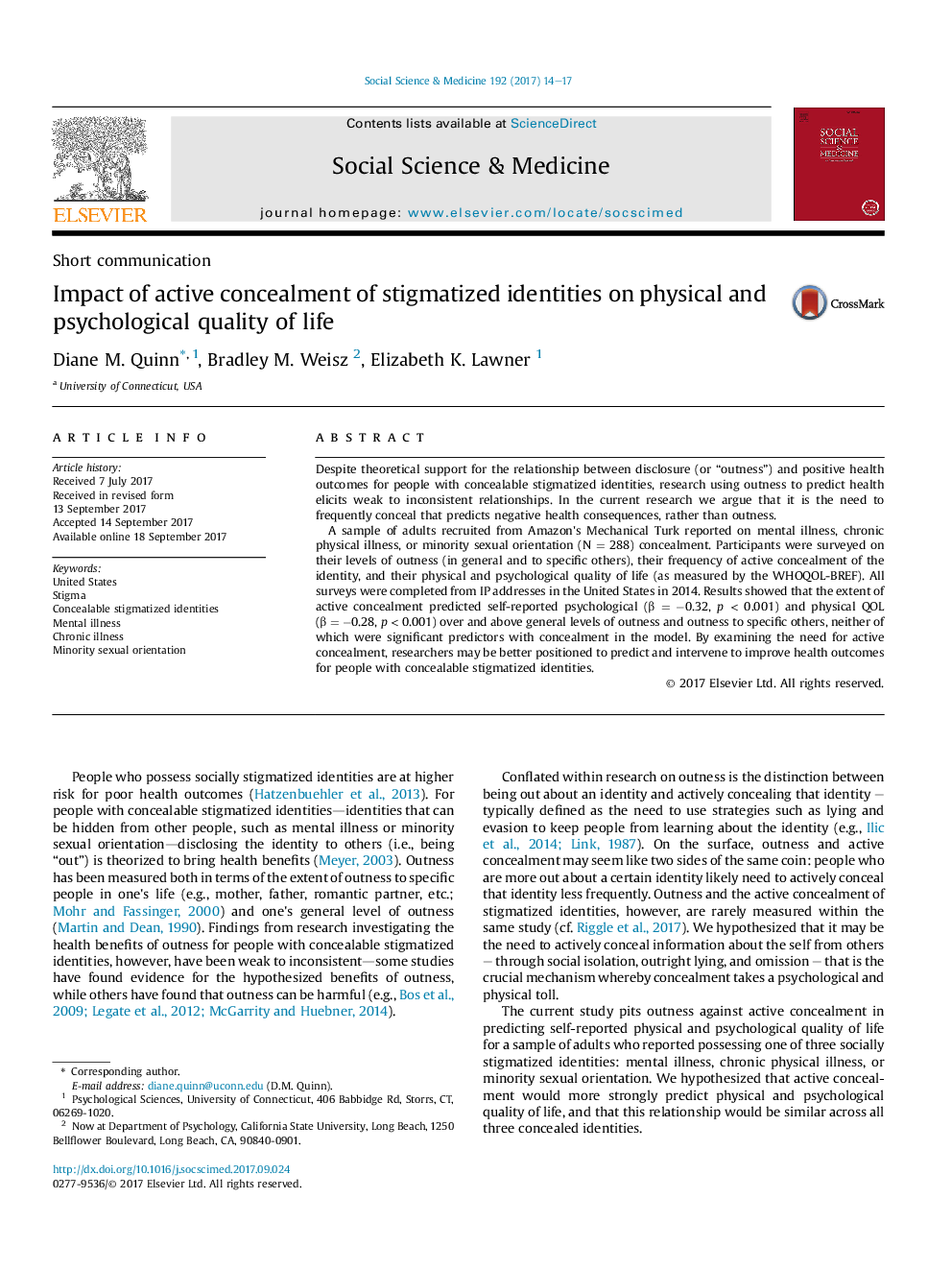| Article ID | Journal | Published Year | Pages | File Type |
|---|---|---|---|---|
| 5046359 | Social Science & Medicine | 2017 | 4 Pages |
â¢Previous literature finds mixed results for effects of outness on health outcomes.â¢Compared effects of outness and active concealment on quality of life (QOL).â¢Active concealment of a stigmatized identity predicted worse QOL.â¢Level of outness for a stigmatized identity did not predict QOL.â¢Better understanding of concealment rather than outness level is recommended.
Despite theoretical support for the relationship between disclosure (or “outness”) and positive health outcomes for people with concealable stigmatized identities, research using outness to predict health elicits weak to inconsistent relationships. In the current research we argue that it is the need to frequently conceal that predicts negative health consequences, rather than outness.A sample of adults recruited from Amazon's Mechanical Turk reported on mental illness, chronic physical illness, or minority sexual orientation (N = 288) concealment. Participants were surveyed on their levels of outness (in general and to specific others), their frequency of active concealment of the identity, and their physical and psychological quality of life (as measured by the WHOQOL-BREF). All surveys were completed from IP addresses in the United States in 2014. Results showed that the extent of active concealment predicted self-reported psychological (β = â0.32, p < 0.001) and physical QOL (β = â0.28, p < 0.001) over and above general levels of outness and outness to specific others, neither of which were significant predictors with concealment in the model. By examining the need for active concealment, researchers may be better positioned to predict and intervene to improve health outcomes for people with concealable stigmatized identities.
